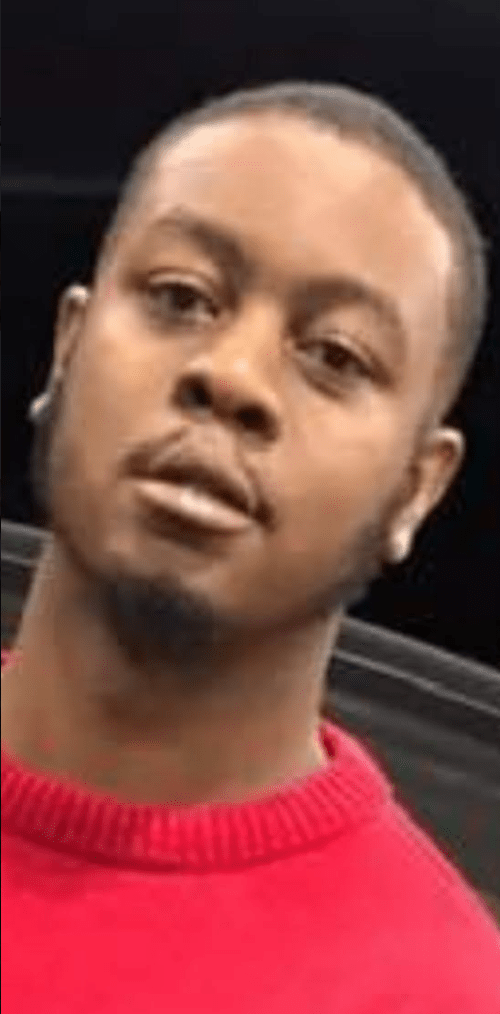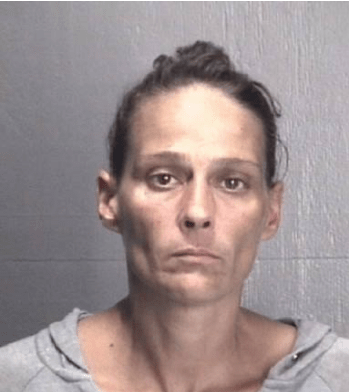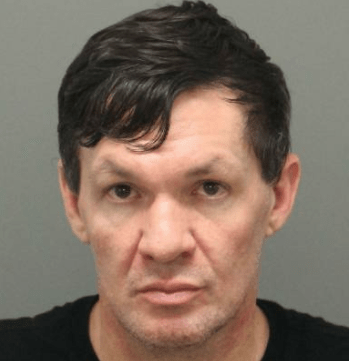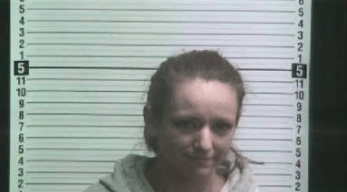Mabo said was that it is my fathers & grandfather's, grandmother's land, I am related to it, it is my identity. But it was a bittersweet moment for the indigenous population. Indigenous Education and Research Centre They both endured early hard lives that steeled them for the struggles that would eventually come their way. This landmark decision led to the Australian Government introducing native title . One of the people who attended the conference, a lawyer, suggested they should make a case to claim land rights through the court system. Eddie Mabo's dream had come true; a meeting of minds to address the issue of Aboriginal land . AAP. In acknowledging the traditional rights of the Meriam people to their land, the court also held that native title existed for all Indigenous people. It was awarded Best Documentary at the Australian Film Institute Awards and the Sydney Film Festival.It also received the Script Writing Award at the New South Wales Premier's Literary Awards. Mabo expressed disbelief and shock. Leeanne Enoch MP, Minister for Housing and Public Works and Minister for Science and Innovation. [1] J Altman., (2014) Scullion Peddles pipedream reforms, Journal of Indigenous Policy, At: http://www.austlii.edu.au/au/journals/JlIndigP/2014/33.pdf (viewed 5 June 2015). 2009 Presentation by Professor Ross Garnaut, Vice-Chancellor's Fellow and Professorial Fellow in Economics, The University of Melbourne, and Distinguished Professor, The Australian University. Mabo Day occurs annually in Australia on 3rd June. The judge's four hundred page report presented Mabo and his barristers with a bombshell which threatened to sink their case. I'd also like to thank AIATSIS for the invitation to speak today and in doing that can I congratulate you Russell on receiving your recent Member of the Order of Australia award. Mabo gained an education, became an activist for black rights and worked with his community to make sure Aboriginal children had their own schools. Document: 00003849.pdf 1 Page(s) Speech at the Gurindji Land Ceremony. But we know that these scales do not capture the social disadvantage experienced by Aboriginal and Torres Strait Islander peoples. A lawyer heard the speech and asked Eddie if he would like to challenge the Australian Government in the court system, to decide who the true owner of the land on Mer was, his . And in 1981, Eddie was invited by the same university to make a speech about Mer's land inheritance system. Mr Mabo died in 1992 just months before his 10-year legal battle for native title rights proved successful. Our News When I looked over the lives of these two great Australians I was struck by the similarities of their struggles and the qualities they each share. The practical effects of Mabo have, indeed, been mixed, judging by figures from the Koori Mail, a national indigenous-owned newspaper. On 21 May 2008, James Cook University named its Townsville campus library the Eddie Koiki Mabo Library. These barriers all prevent us from using our land to enter into the economy from which we can see ourselves and our communities thrive. Tenacity, fearlessness, fearsome, tireless are some of the words that come to mind when the names Rob Riley and Eddie Mabo are mentioned. There will be many words between now and then. Bryan Keon-Cohen was one of Eddie Mabo's barristers, and he gave a speech at Mabo's funderal in Townsville in Feb 1992 - he said: 'I confine myself here . (2012 lecture transcript), 2011 Presentation by Mr Mick Gooda, Aboriginal and Torres Strait Islander Social Justice Commissioner. When democracy is teetering and autocracy is rising. As much as Australias law tried to tell him he was wrong, he knew his law and he knew that even the law of Britain that had stolen this land had to admit finally admit what we all knew, what Eddie Mabo knew. On 3 June 1992, the High Court of Australia ruled in favour of limited native title. (No. Unlike them, however, Mabo wasn't going to accept it. As a nation, this is an improvement from fourth position just over ten years ago in 2003.[10]. At: http://www.austlii.edu.au/au/journals/ALRCRefJl/2009/15.html#FootnoteB6 (viewed 9 June 2015). A world turning. Australian law for two centuries hid the truth behind words. JCU celebrates the history-making Mabo decision with the long establishedEddie Koiki Mabo Lecture Series, an annual public commemorative presentation by a prominent person who has made a significant contribution to contemporary Australian society. Eddie Mabo was heartbroken and never forgave government authorities. It is lament. It commemoratesEdward (Eddie) Koiki Mabo (1936-1992), a Torres Strait Islander whose campaign for Australian Aboriginal and Torres Strait Islander land rights led to a landmark decision in the High Court of Australia on 3rd June 1992 that overturned the legal fiction of terra nullius, which had characterised Australian law with respect to land and title since the voyage of Captain James Cook in 1770. Volume 3 (146pp). Reynolds writes: [2] Australian Human Rights Commission, Paper on Indigenous Leaders Roundtable, Property Rights, p4. [1] Cast [ edit] Jimi Bani as Eddie Mabo Gedor Zaro as Young Eddie Deborah Mailman as Bonita Mabo (ne Neehow) Vincent Lingiari and men and women of the Gurindji people. [6] UN Declaration on the Right to Development, Article 1, para 1. The justices spoke of a legacy of "unutterable shame"and that the dispossession of Indigenous people was the darkest aspect of Australia's history. In the Shire of . Eddie Koiki Mabo died of cancer on 21 January 1991, before the case was resolved. We are still trying to find the words to equal the full measure of Eddie Mabo's devotion. We invite you to walk with us in a movement of the Australian people for a better future.. As Noel Pearson has recently said in relation to this issue: Were moving from a land rights claim phase to a land rights use phase where people are grappling with how we make our land contribute to our development.[3]. However, whilst the right to development is about improvements in economic and material outcomes, it is also about our rights as Indigenous peoples to self-determination and our rights to control our natural wealth and resources. This push for economic independence has sought to move away from models of government dependency and have been premised largely on the use of our land as the basis to achieve this. In 1981, Eddie Mabo made a speech at James Cook University in Queensland, where he explained his people's beliefs about the ownership and inheritance of land on Mer. Words like the Uluru Statement from the Heart: We, gathered at the 2017 National Constitutional Convention, coming from all points of the southern sky, make this statement from the heart: Our Aboriginal and Torres Strait Islander tribes were the first sovereign Nations of the Australian continent and its adjacent islands, and possessed it under our own laws and customs. [11]Native Title Act 1993 (Cth), preamble. We cannot cross the same stream twice. According to accounts of the conversation, the two scholarly figures looked at each other and then, delicately, told Mabo that he didn't own the land and that it was Crown land. This activity encourages children to write down their knowledge in a structured report . In a snapshot. I walked into the news meeting at the ABC with words. But who was Eddie Mabo, why did he take up what must have seemed like a hopeless cause and what is the legacy of his campaign? The case presented by Eddie Mabo and the people of Mer successfully proved that Meriam custom and laws are fundamental to their traditional system of ownership and underpin their traditional rights and obligations in relation to land. Eddie Mabo (left) and . The 50-minute recording shows Koiki Mabo talking about the history of the Torres Strait Islander community, both in the Torres Strait and on the Australian mainland, and the long term impact on his culture of the coming of Europeans, from the first missionaries to current government administrators. Those cases resulted in the acknowledgment that Australian Aboriginal and Torres Strait Islander peoples had the right to claim the land they and their ancestors had lived on for thousands of years. These organisations could assist in under-writing costs, insurance and risk as well as helping explore options for Indigenous specific loan products. These skills will enable us to make better and informed decisions for maximum benefit and I look forward, as I am sure you do, to the release of IBAs investment principles, which they are currently developing in partnership with Aboriginal and Torres Strait Islander peoples and organisations across the country. Credit: Alex Ellinghausen No wonder Mr Abbott was visibly moved as he thanked "Aunty Gail" for . It does not create any new rights, but rather reaffirms the rights that exist in many other international treaties and conventions. Love, kindness, forgiveness; always love. When our world is ablaze with conflict. I believe that it is this framework that has the power to elevate the aspirations that we have as Aboriginal and Torres Strait Islander peoples in relation to land. Participants in Broome identified there was a real need to have a new conversation with Government around Indigenous land and property rights and how this might translate into sustainable economic development. I have been honoured in the last six weeks by being asked to deliver both the Eddie Koiki Mabo Lecture here today and the Rob Riley Memorial Lecture on Friday the 8 th of May in Perth. The conference, 'Land Rights and the Future of Australian Race Relations', was sponsored by the Townsville Treaty Committee and the James Cook University's Student Union. The Court also recognised that all Indigenous people in Australia have rights to their land. At http://hdr.undp.org/sites/default/files/reports/264/hdr_2003_en_complete.pdf (viewed 9 June 2015). This is our land. This case, I said thisman Mabo will change Australia. It contains just 10 articles on what the instrument describes as an, inalienable right, by which every human person and all peoples are entitled to participate in, contribute to and enjoy economic, social, cultural and political development, in which all human rights and fundamental freedoms can be fully realised.[6]. It goes on to mention the yet unfulfilled nature of redress through a social justice package that I alluded to earlier: Aboriginal and Torres Strait Islander peoples have been progressively dispossessed of their lands. active, free and meaningful participation in development; self-determination and full sovereignty over natural wealth and resources. For the love of his family and tradition, he fights for his land on Murray Island. Topics are usually less than 2 minutes long. It was on 3 June 1992 that the Australian High Court overturned more than 200 years of white domination of land ownership. I like words. In conversations with Commissioner Wilson and others, we are in the midst of developing what the next step in this process should look like and we will continue to engage with Aboriginal and Torres Strait Islander peoples such as yourselves in order to do this. Two generations talk about the impact of the 1967 Referendum and the 1992 Mabo Decision . . Eternal. And he knew truth. We acknowledge Aboriginal People and Torres Strait Islander People as the first inhabitants of the nation, and acknowledge Traditional Custodians of the Australian lands where our staff and students live, learn and work. Yet, the first colonialists decided, for commercial reasons, to ignore all that and peddle the view that Aboriginal people were primitive, disorganised, culture-less creatures who deserved no rights over land. Until that day, the legal fiction of terra nullius, the land belonging to no-one, had characterised Australian law and land titles since the voyage of Captain Cook. I like how the words create a rhythm. Court cases in the mid-19th century challenged the idea of British settlement at the time the rulings were in favour of the Crown. He married Bonita, his teenage sweetheart and with whom he had 10 children in a loving partnership that lasted 30 years. That permission was denied. Aunty Clara Ogleby, I begin by acknowledging and paying my respects to the Kuku Yalanji people, Traditional Owners of the place upon which we sit and talk today. In his historic speech at Sydney's Redfern Park, then Prime Minister Paul Keaing said: "By doing away with the bizarre conceit that this continent had no owners prior to the settlement of Europeans, Mabo establishes a fundamental truth and lays the basis for justice." In 1979 Wiradjuri man and law student Paul Coewalked the path that Eddie Mabo would follow all the way to the High Court of Australia. Without this foundation, there would be no opportunity for us to access these rights through this unique form of land tenure. 2008 Presentation by The Hon. There were three key components to this: As you will know, the first two of these three components have been implemented, with varying degrees of success and impact on our communities over the years. "If Koiki Mabo were alive today he would be an angry man," says Malezer. Can I also acknowledge all you here today who have come together to work out how we can access our land, seas and waters easier and quicker, but who have also come to talk to each other about how we can make better use of our estates to make life a little better for the rest of our mob out there. This will always be our land. Australia owes you a great debt. 3. Business development support and succession planning. Words speak across tongues. Eddie Mabo was a man of courage and principle who fought for the inherent rights of the Meriam people, and ultimately for the rights of all Torres Strait Islanders and Aboriginal peoples. This service may include material from Agence France-Presse (AFP), APTN, Reuters, AAP, CNN and the BBC World Service which is copyright and cannot be reproduced. Importantly, development is also a process through which other human rights can be realized and our wellbeing alongside all other populations is maximised. This often presents internal issues for traditional owner groups about how decisions are made and how benefits will be shared and responsibilities exercised. Alex Murdaugh jailed for life for double murder, Why the disgraced lawyer was spared death penalty, Saving Private Ryan actor Tom Sizemore dies at 61, The children left behind in Cuba's mass exodus, Xi Jinping's power grab - and why it matters, Snow, Fire and Lights: Photos of the Week. [1] And that shift is the move to the next emerging challenge; how do we maximise these rights to their full potential, now that we have our native title recognized? It was during a stint as a gardener at the James Cook University at Townsville in Queensland, that his eyes were opened to the greatest injustice his people had ever been subjected to. The new conversation that we need to be having around our rights to land and resources has been captured in the thematic areas I have just spoken about. He would later describe his time on the island as 'the best time of my life'1. Mabo expressed disbelief and shock. Resting Place of Eddie Mabo. In New South Wales, the most populous state, Aboriginal people have title over only 0.1% of the land. The second key theme that was raised at the roundtable was the issue of financing economic development within the Indigenous estate. Judged by any civilised standard, such a law is unjust ". Born in 1936, he grew up in the village of Las on the north bend of Mer Island. Milosz wrote into the horror of the 20th century as he saw war all around him. Words. De Rose Hill is a landmark case because it represents a significant moment in time in the native title space. In 1959, he moved to mainland Queensland, working on pearling vessels and as a labourer. From 1973-1983 he established and became director of the Black Community School in Townsville. Truth. Edward Koiki Mabo ( n Sambo; 29 June 1936 - 21 January 1992) was an Indigenous Australian man from the Torres Strait Islands known for his role in campaigning for Indigenous land rights in Australia, in particular the landmark decision of the High Court of Australia that recognised that indigenous rights to land had continued after the British Unfortunately, the right to development is not a concept often thought about in relation to Aboriginal and Torres Strait Islander peoples as members of a developed country. As Kevin Mason divedin the ocean, a compliance officer waswatching on the cliffs above. The legal decision was made by the High Court on 3 June 1992. His mother passed away shortly after his birth and he was adopted by his Uncle Benny and Aunty Maigo Mabo in line with Islander custom. Promoting Indigenous peoples right to development. Another similarity is something that sometimes we do not acknowledge enough. Husband, father, grandfather, mate, advocate, achiever, Principal and mentor. Gail Mabo and Prime Minister Tony Abbott during their visit to the grave of Eddie Mabo on Mer Island. Edward Koiki Mabo was born on 29 June 1936. In some ways our systems of governance is a defining feature of the oldest living culture on this planet. Other cases persisted. Choose from the list of topics on the left and then choose 'Click to Play'. We need to work alongside government to equip ourselves with the knowledge and skills to turn the economic and commercial aspirations into reality. More information. Realising these aspirations, is key to our economic development and prosperity as Aboriginal and Torres Strait Islander peoples where our land is our ultimate asset. That word is emblazoned still at the Aboriginal Tent Embassy on the lawns of the Old Parliament House in Canberra. You may have heard that Tim Wilson, Human Rights Commissioner and I recently co-convened a roundtable on Yawuru country on the issue of Indigenous property rights. They claimed that Murray Island (Mer) and surrounding islands and reefs had been continuously inhabited and exclusively possessed by the Meriam people . I also acknowledge the Minister for Indigenous Affairs, Nigel Scullion who is here today and my colleague Tim Wilson, our Australian Human Rights Commissioner. (2012) This program was published 2 years ago. A number of key challenges that face Aboriginal and Torres Strait Islander people were explored, particularly when it comes to the full realization of our rights under land rights and native title. Older articles are being reviewed with a view to bringing them into line with contemporary values but the original text will remain available for historical context. The Mabo decision was a legal case held in 1992. (2010 lecture transcript). (Transcript), 2014 Presentation byMs Shannan Dodson, Digital Campaign Manager, Recognise Australia. (2011 lecture transcript), 2010 Presentation by Professor Chris Sarra. In 1982, Eddie Mabo and four others began action seeking a legal declaratcion of their traditional land rights in the Murray islands of the Torres Strait, Tvn years later onL 3 June 1992, the High Court decided that his people were entitled as against the whole of ! Land claim, 1981-1992 In 1981, at a conference on indigenous land rights in Townsville, a decision was made to pursue a native land title claim for the people of the Murray Islands in the High Court of Australia. Han is Korean and it is more than a word. The most important revelation arising from Eddie Mabo's claim and the High Court's decision was that an ancient title connected to the traditional occupation of the land by Aboriginal and Islander people had survived the . That is, how do we build on the underlying communal title to create options for our economic development? This sovereignty is a spiritual notion: the ancestral tie between the land, or "mother nature", and the Aboriginal and Torres Strait Islander peoples who were born therefrom, remain attached thereto, and must one day return thither to be united with our ancestors. At: http://www.theaustralian.com.au/news/features/property-rights-will-help-economic-development-of-indigenous-australians/story-e6frg6z6-1227365821530 (viewed 3 June 2015), [4] T Calma, Native Title Report 2005, Australian Human Rights Commission, 2005, p82. the Aborigines did not give up their lands peacefully; they were killed or removed forcibly from the lands by United Kingdom forces or the European colonists in what amounted to attempted (and in Tasmania almost complete) genocide.". We are currently not sharing in the developmental prosperity for which Australia is known. Three bound volumes regarding the determination of a reference from the High Court of Australia of the factual issues raised in the action by Eddie Mabo and others - prepared by Justice Moynihan. Strengthening our relationships over lands, territories and resources: the UN Declaration on the Rights of Indigenous Peoples, Climate change from the perspective of the Torres Strait, Beyond Mabo: Native Title and closing the gap, People, identity and place. Make an Impact. There was something of destiny in the air. Fungibility and native title. The National Archives holds a diverse array of records relating to the Mabo case. We will adapt, we will take advantage of these opportunities and we will leave a great legacy. The Murray Islands Mabo v Queensland (No 2) (commonly known as the Mabo case or simply Mabo) is a landmark decision of the High Court of Australia that recognised the existence of Native Title in Australia. I have heard it at dawn as the earth crackles, the river waters run, and the animals stir as the Sun peers above the hills and the light strikes the trees on my beloved Wiradjuri country. In my tribute to Rob, I mentioned how losing that fight for national land rights lit the fires for what was to become the fight for native title led by Eddie, with Rob being part of the leadership that negotiated the Native Title Act through the national parliament to give legislative effect to the High Court decision championed by Eddie. But he was wrong. Mabo 20 years on: did it change the nation? Eddie Koiki Mabo was an advocate of the 1967 Referendum, fighting for equal rights including education. Speech to the Native Title Conference celebrating the 20th Anniversary of the Mabo High Court decision 6 June 2012. . Aboriginal and Torres Strait Islander peoples are advised that this site may contain names, images or voices of people who have passed away. Eddie Mabo of Mer island in the Torres Strait spent a decade seeking official recognition of his people's ownership of Mer and on 3 June 1992, the High Court of Australia agreed, rejecting the doctrine that Australia was terra nullius (land belonging to no-one) at the time of European settlement. B12 of 1982 in the High Court of Australia). In Torres Strait Islands called the Mabo case, for Eddie Mabo, the first-named plaintiff) brought by several individuals that was won in the High Court of Australia in 1992; subsequent cases were also settled in favour of other groups of islanders. [12] Native Title Act 1993 (Cth), preamble. During this time he enrolled as a student and studied teaching at the College of Advanced Education, which later amalgamated with JCU. For significant service to the community as a cultural leader and public sector executive in the field of Indigenous affairs.. In-text: (Two generations talk about the impact of the 1967 Referendum and the 1992 Mabo Decision, 2019) Your Bibliography: Time Out Sydney.







eddie mabo speech transcript